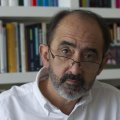Conocimiento y democracia. Una interacción necesaria y compleja
Description
La idea de knowledge democracy puede definirse como la relación entre la producción y divulgación del conocimiento, el funcionamiento de los medios de comunicación y las instituciones democráticas[1]. De ser así, la reflexión sobre estos temas es más pertinente hoy que nunca.
Por poner un solo ejemplo, la edición de El País del domingo 24 de noviembre titulaba a cuatro columnas como tema más importante de la portada algo que no era noticia sino más bien una propuesta de reflexión: “La era de la desinformación”. Y subtitulaba “Un gran desafío para las democracias”. Una entrevista con la excanciller alemana Angela Merkel era la segunda llamada principal de la portada, bajo el titular: “Estoy preocupada, tenemos que cuidar la libertad”.
Ya en el 2011 Daniel Innerarity nos decía que “las políticas del conocimiento y a través del conocimiento se han convertido en un asunto de ciudadanía democrática, donde nos jugamos muchos problemas teóricos y, principalmente, la calidad de nuestro espacio público”[2].
Desde entonces muchas cosas han pasado y cambiado. Harari denuncia cierta visión ingenua que hemos tenido de la información[3], según la cual de la mejor información vendría el mejor conocimiento y de ahí la mejor sociedad, la mejor gobernanza o la mejor democracia.
Desde mediados de la década pasada una oleada de populismos arrasó la política comparada: desde Trump a Bolsonaro, desde Erdogan hasta Duterte pasando por el referéndum del Brexit. Ahora vivimos la consolidación de ese tipo de regímenes: Trump segunda parte, Milei, Bukele, Orbán y tantos otros.
Su éxito no habría sido posible sin una transformación muy profunda en la manera de informarnos, la pérdida de prestigio de los medios de comunicación y su sustitución por redes donde el mercado de la atención fomenta cajas de resonancia, tendencias negacionistas y anticiencias, visiones que desafían el conocimiento crítico y las comunicades e instituciones creadas para desarrollarlo, y rechazo hacia las instituciones del estado de derecho que son percibidas como establishment o élites. La irrupción de la Inteligencia Artificial supone un nuevo paso que podría multiplicar algunos de estos fenómenos.
La relación entre la información, el conocimiento y la calidad de nuestra convivencia, de la democracia y de la libertad desafía cualquier acercamiento simplista. Sin embargo, estamos obligados a entender para poder reaccionar mejor, si queremos un mundo mejor para quienes vienen detrás.
[1] The concept of knowledge democracy is meant to enable a new focus on the relationships between knowledge production and dissemination, the functioning of the media and our democratic institutions. Roeland Jaap in’t Veld, Knowledge Domocracy, Springer, 2010
[2] Innerarity, Daniel, La democracia del conocimiento. Por una sociedad inteligente. Paidós, 2011.
[3] Harari, y. n., Nexus, Debate, 2024
Objectives
Reflexionar sobre la relación entre conocimiento y democracia en el mundo y en nuestro país.
Conocer de primera mano lo que está sucediendo de los Estados Unidos en materia de libertad académica, cultura científica y democracia
Conocer redes europeas que trabajan por la responsabilidad ciudadana en materia de ciencia para la democracia.
Profundizar sobre algunos aspectos concretos de esa relación entre conocimiento y democracia: seguridad global, cambio climático, igualdad de género.
Conocer el papel de los medios de comunicación.
Activity directed to
- All public
- University student
- Students not from university
- Teachers
- Professionals
Program
30-06-2025
Registro / Erregistroa
Presentation by the Director of the activity
- Mikel Mancisidor de la Fuente | Universidad de Deusto - Centro Vasco de Investigación sobre Conocimiento para la Democracia, e investigador de la Universidad de Deusto
“Conferencia inaugural: Conocimiento, política y democracia. Reflexiones de un científico que asume responsabilidades políticas“
- Juan Ignacio Pérez Iglesias | Eusko Jaurlaritza / Gobierno Vasco - Consejero de Ciencia, Universidades e Innovación
Break
“Knowledge, science, freedom and democracy. Reflections from the USA at a grim time“
- Cyrus Taylor | Case Western Reserve University (CWRU) - Albert A. Michelson Professor in Physics
“Knowledge, politics and democracy. A personal insight“
- Brian Gran | Case Western Reserve University (CWRU) and U.S. Department of State - Professor of Sociology and Expert Consultant to the Bureau of the Under Secretary for Civilian Security, Democracy, and Human Rights, U.S. Department of State
“Science-related populist speech and science diplomacy. The broken Atlantic alliance?“
- Helle Porsdam | University of Copenhagen - Professor of Humanities and Director of the UNESCO Chair on Cultural Rights
Round table: Round table
- Ivan Ureta Vaquero | Geneva Center for Security Policy (GCSP) / Universidad de Ginebra - Director of Executive Education / Co-director del Master en International Security (Moderator)
- Cyrus Taylor | Case Western Reserve University (CWRU) - Albert A. Michelson Professor in Physics
- Brian Gran | Case Western Reserve University (CWRU) and U.S. Department of State - Professor of Sociology and Expert Consultant to the Bureau of the Under Secretary for Civilian Security, Democracy, and Human Rights, U.S. Department of State
- Helle Porsdam | University of Copenhagen - Professor of Humanities and Director of the UNESCO Chair on Cultural Rights
Pausa-Café
“Science for Democracy. Knowledge and action. A platform from Europe“
- Laura Convertino | Science for Democracy; King’s College London; University College London (UCL) - Presidenta de Science for Democracy; Médica; NIHR Academic Clinical Fellow en Psiquiatría General; Investigadora en Neurociencia Cognitiva
“Clausura: La ciencia, el conocimiento y la democracia“
- Daniel Innerarity Grau | Universidad del País Vasco (UPV/EHU) - Catedrático de Filosofía Política y Social; Director del Instituto de Gobernanza Democrática
01-07-2025
“¿De qué hablamos cuando hablamos de conocimiento y democracia y qué nos jugamos en ello?“
- Mikel Mancisidor de la Fuente | Universidad de Deusto - Centro Vasco de Investigación sobre Conocimiento para la Democracia, e investigador
“Ciencia, diplomacia, democracia y seguridad internacional en tiempos de nuevos conflictos“
- Ivan Ureta Vaquero | Geneva Center for Security Policy (GCSP) / Universidad de Ginebra - Director of Executive Education / Co-director del Master en International Security
Break
“La ciencia aliada imprescindible para un mundo mejor. Ciencia y gobernanza local y global. El caso del Cambio Climático“
- María José Sanz Sánchez | BC3 Basque Centre for Climate Change - Directora
“Igualdad en la ciencia, igualdad para la democracia“
- Marta Macho Stadler | Universidad del País Vasco (UPV/EHU) - Prof. Titular de Geometría y Topología; Editora del blog "Mujeres con Ciencia"
Pausa-Café
“Conferencia de clausura: La comunicación, la información, el conocimiento y la democracia. El papel de un grupo de comunicación público“
- Andoni Aldekoa de la Torre | EITB - Director General
Directors

Mikel Mancisidor de la Fuente
Universidad de Deusto
Mikel Mancisidor has a degree in Law and is doctor in International Relations and Diplomacy (DIR GSD) and doctor in History (Universidad de Deusto). He has been Rapporteur of the General Comment on Science and Human Rights of the UN Committee on ESCR (he has been a member of this committee since 2013). He has taught International Law and International Human Rights Law at Deusto, American University and Institute René Cassin. He was awarded the Gold Medal of Rights 2013 and the Eusko Ikaskuntza - Caja Laboral Humanities Award 2020.
Speakers

Andoni Aldekoa de la Torre
He has been the director-general of the public Basque Broadcasting Corporation EITB (Euskal Irrati Telebista) since November 2020. Previously, he was an advisor to the Presidency of the Basque Government and director of Communication (2015-2017). He has also been president of the public companies PROMOBISA and Bilbao Next of the City Council of Bilbao for city promotion and development. He graduated in Radio and Television at the INDESCO Bilbao (1991-92). He got a Master's degree in Political and Electoral Communication at the Universidad Autónoma de Barcelona and a postgraduate degree in Economic Intelligence and Security at ICADE (2016). Likewise, he obtained the certificate in Management Standards under the rules of the EFQM, European Foundation for Quality of Management. He has taught Public Management at the George Washington University Graduate Program for Latin American programs. He has been a guest lecturer and speaker at university postgraduate and training courses on Public Management and Institutional Communication at INAP, FEMP, UNED, Universidad del País Vasco y Universidad de Deusto.

Laura Convertino

Brian Gran

Daniel Innerarity Grau
Globernance
Director del Instituto de Gobernanza Democrática, Globernace. También es Catedrático de filosofía política y social e investigador IKERBASQUE en la Universidad del País Vasco. Profesor invitado en diversas universidades europeas y americanas, recientemente en el Robert Schuman Centre for Advanced Studies del Instituto Europeo de Florencia, así como en la London School of Economics. Actualmente, es Director de Estudios Asociado de la Fondation Maison des Sciences de l'Homme de Paris. Entre sus últimos libros cabe destacar La Política en Tiempos de Indignación, Un mundo de todos y de nadie; La democracia del conocimiento, Premio Euskadi de Ensayo 2012; La humanidad amenazada: gobernar los riesgos globales (con Javier Solana); El futuro y sus enemigos; El nuevo espacio público; La sociedad invisible, Premio Espasa de Ensayo 2004; La transformación de la política, III Premio de Ensayo Miguel de Unamuno y Premio Nacional de Literatura en la modalidad de Ensayo 2003.
She is a professor at the University of the Basque Country UPV/EHU and holds a PhD in Mathematics from the Claude Bernard University of Lyon. She is a topology specialist. Interested in the dissemination of science, she has been participating for years in various activities at universities, scientific institutions, cultural or educational centers. She collaborates in medias, such as the program La Mecanica del Caracol on Radio Euskadi or the Network of Communicating Scientists of El Periódico in collaboration with the Esteve Foundation. She is the editor of the Women with Science blog of the Chair of Scientific Culture of the UPV/EHU. In 2015 she received the University of Alicante Equality Award and one of the Medals of the Royal Spanish Mathematical Society in its first edition. In 2016 she was awarded the Emakunde Prize "for her scientific career aimed at disseminating and promoting the approach of mathematics and scientific knowledge to women, as well as for making visible and vindicating women scientists and their contributions to both the Academy and to social progress. In 2019 she received the appointment of Illustrious of Bilbao "for her work as a science communicator and for making visible the role of women in science."

Mikel Mancisidor de la Fuente
Universidad de Deusto
Mikel Mancisidor has a degree in Law and is doctor in International Relations and Diplomacy (DIR GSD) and doctor in History (Universidad de Deusto). He has been Rapporteur of the General Comment on Science and Human Rights of the UN Committee on ESCR (he has been a member of this committee since 2013). He has taught International Law and International Human Rights Law at Deusto, American University and Institute René Cassin. He was awarded the Gold Medal of Rights 2013 and the Eusko Ikaskuntza - Caja Laboral Humanities Award 2020.

Juan Ignacio Pérez Iglesias
UPV/EHU
He is professor of physiology at the EHU and associate of the Donostia International Physics Center. He was vice-rector (1997-2000) and rector (2004-2009) of the EHU; member of the Board of Directors of EITB (1999-2014); Chair of Scientific Culture of the EHU (2010-2024); member (2013-) and president (2020-2024) of Jakiunde; member (2018-2024) and president (2019-2024) of the Advisory Committee of the Spanish edition of The Conversation; member of the scientific committee of the journal Mètode (2023-). He has written on science and its social implications (The Conversation and Revista de Occidente) and on animal biology (Cuaderno de Cultura Científica, Zientzia Kaiera, Naukas and Mètode). He has collaborated in numerous radio programs in several radio stations. He is co-author with M. B. Urrutia of Animalien aferak (EHUpress, 2011), author of Animales ejemplares (Next Door, 2020), co-author with J. Sevilla of Los males de la ciencia (Next Door, 2022) and author of Primates al este del Edén (Crítica, 2023). In 2019 he received the Eusko Ikaskuntza-Caja Laboral Award for Humanities, Culture, Arts and Social Sciences. Since June 2024 he has been Head of Science, Universities and Innovation of the Basque Government.

Helle Porsdam
Ikerbasque Professor and Scientific Director of the Basque Centre for Climate Change (2016-). She graduated at University of Valencia and post-doct in the Arizona State University. She has worked on research and research-policy at national and international level. She has also worked at Mediterranean Center for Environmental Studies (CEAM) until 2007. She was Senior Officer positions at the secretariat of the UNFCCC supporting climate change negotiations (2007-2011), and at FAO as Program Coordinator of the UNREDD Programme (2012-2015). She held the High Distinction for Scientific Merit of the Generalitat Valenciana (2019). Dr. Sanz has worked extensively on air pollution and climate change and environment issues for 30 years. She has published over 150 scientific papers, among other in Nature, Nature Climate Change and PNAS, and is recognized as an expert in land use and climate change issues. She has been an advisor to and collaborated with many national and international organizations (World Bank, UNDP, UNEP, UNFCCC secretariat, Meridian Institute, the European Commission, the Green Climate Fund and the governments of Spain), and several of its regional governments, Japan, US, and several developing country governments.

Cyrus Taylor

Ivan Ureta Vaquero
Registration fees
| Face-to-face | Until 30-06-2025 |
|---|---|
| 50,00 EUR | |
| 43,00 EUR | |
| 35,00 EUR | |
| 25,00 EUR |
Venue
Bizkaia Aretoa-UPV/EHU
Avenida Abandoibarra, 3. 48009- Bilbao
Bizkaia
Bizkaia Aretoa-UPV/EHU
Avenida Abandoibarra, 3. 48009- Bilbao
Bizkaia







